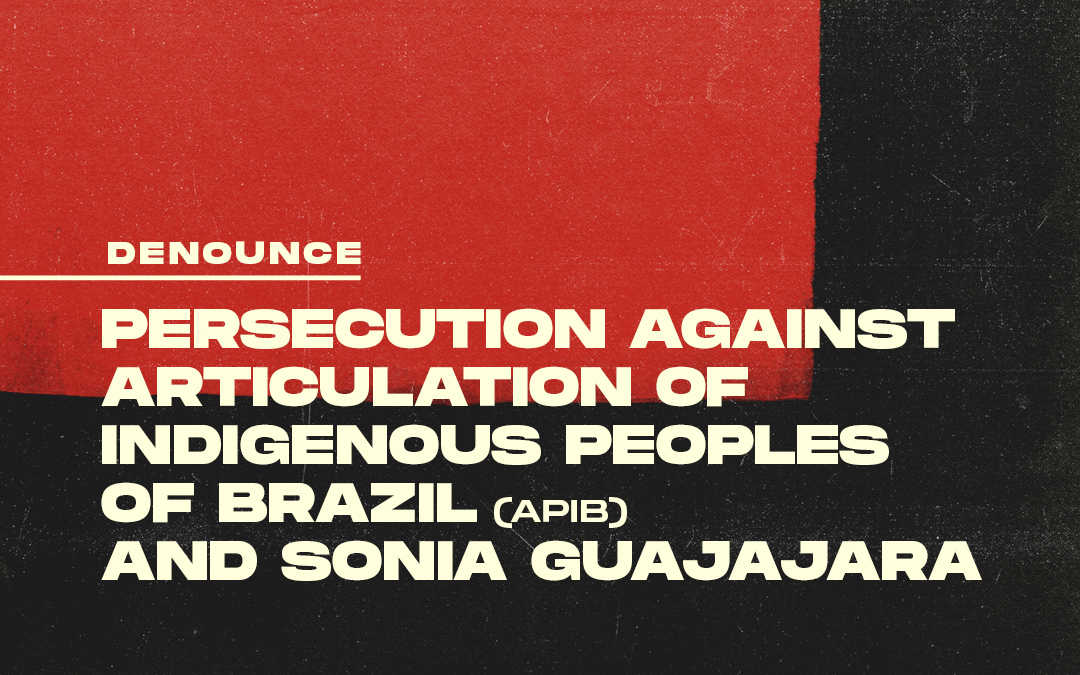
30/Apr/2021
The Federal Government once again tries to criminalize the indigenous movement, intimidate the Articulation of Indigenous Peoples of Brazil (Apib), our network of grassroots organizations, and one of Apib’s executive coordinators, the leadership Sonia Guajajara, in an act of political and racist persecution.
During the month of the largest indigenous mobilization in Brazil and the week following the ‘Climate Summit’ meeting, the Federal Police summoned Sonia, on April 26, to testify in an investigation provoked by the National Indian Foundation (Funai). The body, whose institutional mission is to protect and promote the rights of the peoples of Brazil, accuses Apib of defaming the Federal Government with the web-series “Maracá” (http://bit.ly/SerieMaraca), which denounces violations of rights committed against indigenous peoples in the context of the Covid-19 pandemic. These complaints have already been recognized by the Supreme Federal Court (STF) through ADPF 709.
The racist and hateful speeches of the Federal Government stimulate violations against our communities and paralyze the State actions that should promote assistance, protection and guarantees of rights. And now, the Government seeks to intimidate indigenous peoples in a clear attempt to retrench our freedom of expression, which is the most important tool for denouncing human rights violations. Currently, more than half of the indigenous peoples have been directly affected by Covid-19, with more than 53 thousand confirmed cases and 1059 dead.
They will not trap our bodies and they will never silence our voices. We will continue to fight for the defense of the fundamental rights of indigenous peoples and for life!
Follow today, April 30, at 3:00 pm (Brasília time), the closure of the Terra Livre Camp with the positioning of Apib and its regional indigenous organizations on the case, which will be transmitted at apiboficial.org/atl2021
Indigenous blood, not a single drop more!
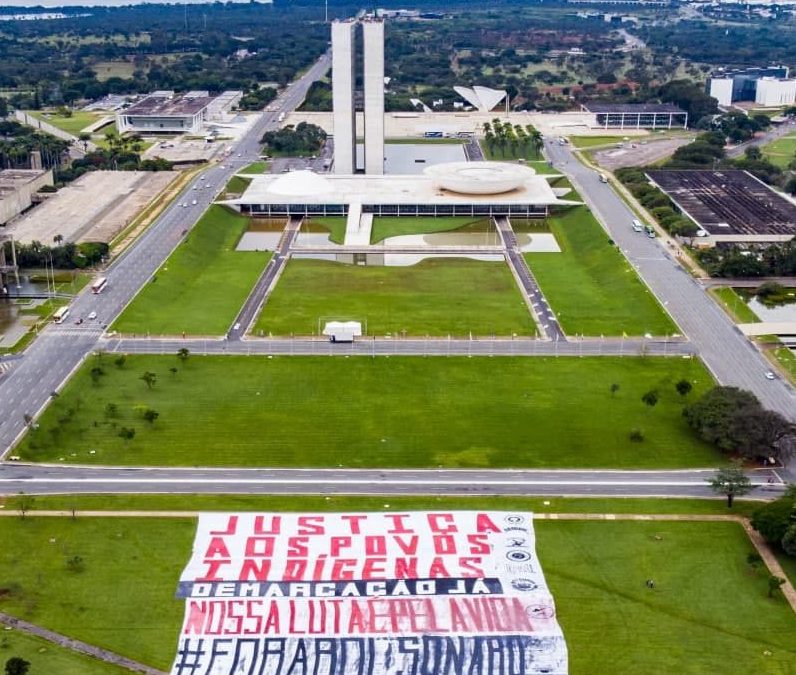
19/Apr/2021
In respect of the Democratic Rule of Law and the protection of the fundamental rights of indigenous peoples.
The Articulation of Indigenous Peoples of Brazil – APIB, in the midst of the health and humanitarian crisis caused by Covid-19, worsened by the worst virus in our country’s political and democratic history – the Government of Jair Bolsonaro – holds the 17th Camp Terra Livre (ATL) ), the greatest indigenous mobilization that, even in a virtual way, echoes with the national and international society, the serious violations to the fundamental rights of our peoples committed by the invaders of yesterday and today, and which, at the current political moment, are encouraged by government agencies, public agents and the President of the Republic himself.
APIB warns the Brazilian people and the world about the risks that hover over our indigenous peoples, as a death project is underway, which in the name of predatory economic growth and development, undertakes an offensive against us through different means: administrative, legal and legislative, aiming to suppress our rights ensured by the 1988 Federal Constitution, with emphasis on our right to the exclusive possession and enjoyment of our lands, to specific and differentiated policies that concern us, in short, to our right to exist as original peoples, with our own ways of life.
Diante dessa tragédia desenhada, que reedita a invasão colonial do ano de 1500, anunciamos, em primeiro lugar, que não desistiremos de resistir e lutar como já o fizeram os nossos ancestrais e líderes que nos antecederam. E com essa disposição, de inclusive dar a vida pela nossa mãe terra, pelas nossas atuais e futuras gerações, exortamos aos setores solidários da sociedade nacional e internacional a somarem conosco, não apenas para proteger os nossos direitos, mas também para fortalecer a nossa luta geracional a nossa contribuição histórica e atual ao bem viver da humanidade inteira, assim como pelo equilíbrio climático e a restauração de uma sociedade justa, plural, realmente democrática e respeitosa dos direitos humanos e do Estado Democrático de Direito. Nesse sentido desde essa perspectiva manifestamos:
Faced with this produced tragedy, which reissues the colonial invasion of the year 1500, we announce, first of all, that we will not give up on resisting and fighting as our ancestors and leaders who preceded us have already done. And with this willingness to even give our lives for our mother earth, for our current and future generations, we urge the solidarity of national and international society to join us, not only to protect our rights, but also to strengthen our generational struggle, our historical and current contribution to the good life of the whole humanity, as well as to the climatic balance and the restoration of a just, plural, truly democratic and respectful society of human rights and the Democratic Rule of Law. In this sense, from this perspective, we manifest:
To the Legislative Power
- We radically oppose to any initiatives that intend to reverse and suppress our rights guaranteed by Articles 231 and 232 of the Major Law and other articles that extend to our condition as Brazilian citizens, in fact, the first, since we were already here in these lands when Europeans outraged them and wiped out more than millions of our relatives, burying diverse cultures and multiple native languages.
- We repudiate the intention of transferring to the National Congress the responsibility to demarcate our lands, a trick aimed at serving only the interests of the latifundio, the advance of agricultural frontiers and their ecocidal sequels on our territories, due to the indiscriminate use of pesticides, against our multiple forms of traditional production, our cultural and spiritual bond with Mother Nature.
- We flatly reject constitutional amendments, such as PEC 215, and Draft Laws such as 191/2020 that try to make our territories available to mining or legalize illicit activities such as gold mining, now under the control of real criminal organizations, disregarding the constitutional precept that requires the existence of a complementary law, as well as the right to free prior and informed consultation guaranteed by Convention 169 of the International Labor Organization (ILO), and the principle of exceptionality that preserves our territories from these types of enterprises.
- We do claim from the National Congress measures that reiterate or reaffirm the multi-ethnic and pluricultural character of the Brazilian State recognized by the Federal Constitution and the archiving of any legislative initiatives designed, under the command of private, national or international interests, to usurp our original rights to our lands and to deconstruct our existence of ethnically and culturally differentiated collectivity.
To the Judiciary
- We salute and recognize as historical the latest decisions, mainly from the Supreme Court, which on one hand reaffirms the legality and legitimacy of our own social organization established by our Major Law. On the other hand, it enshrines the right of access to justice for our peoples and communities.
- To the greatest responsible for the protection of constitutional rights, we express our confidence in the subsequent decisions of the Supreme Federal Court (STF) aiming at the full protection of the fundamental rights of our peoples, especially the original, congenital, innate right to the lands that we traditionally occupy.
- We require the STF to pay special attention and perception to sneaky judicial maneuvers that are being processed or will be processed within the scope of the Judiciary, which aim solely and exclusively to usurp our rights as indigenous peoples, as well as trying to delegitimize our indigenous leaders and organizations, historically recognized and defenders of our peoples and territories.
To the Executive
- We demand from the transitional Bolsonaro government to give up its death project, its vile genocidal plan, its undermined or explicit intentions to exterminate us. That if he did not do so during his more than 28 years of parliamentary life, that he read and obey the Federal Constitution, especially the articles that guarantee our rights.
- We demand that the government respect the majority position among our peoples of not allowing the availability of our territories for predatory exploitation resulting from mining, logging, hydroelectric projects and any other infrastructure works, which imply the destruction of our surroundings, our forests, rivers, lakes, sacred places, and biodiversity that we have helped to preserve for millennia.
- We demand an end to the incentive to invasions and illicit acts committed by criminal organizations that in the administration of this government have intensified: land grabbing, mining, illegal logging, illegal fishing, drug trafficking and the enticement of indigenous leaders.
- We repudiate and demand an end to the fratricidal war fueled by this government, which fuels divisionism, conflict and confrontation among indigenous people, by promoting the co-option of some indigenous people to legitimize the opening and availability of our territories to the interests of agribusiness and mining, among other ventures.
- Finally, we demand respect not only for the Federal Constitution, but also for the International Treaties signed by Brazil that protect our rights, the respect for Human Rights, the end of cynicism and denialism in the face of the health crisis that plagues our country and the preservation of the Democratic state.
Brasília – DF, April 19, 2021.
Articulation of Indigenous Peoples in Brazil – APIB
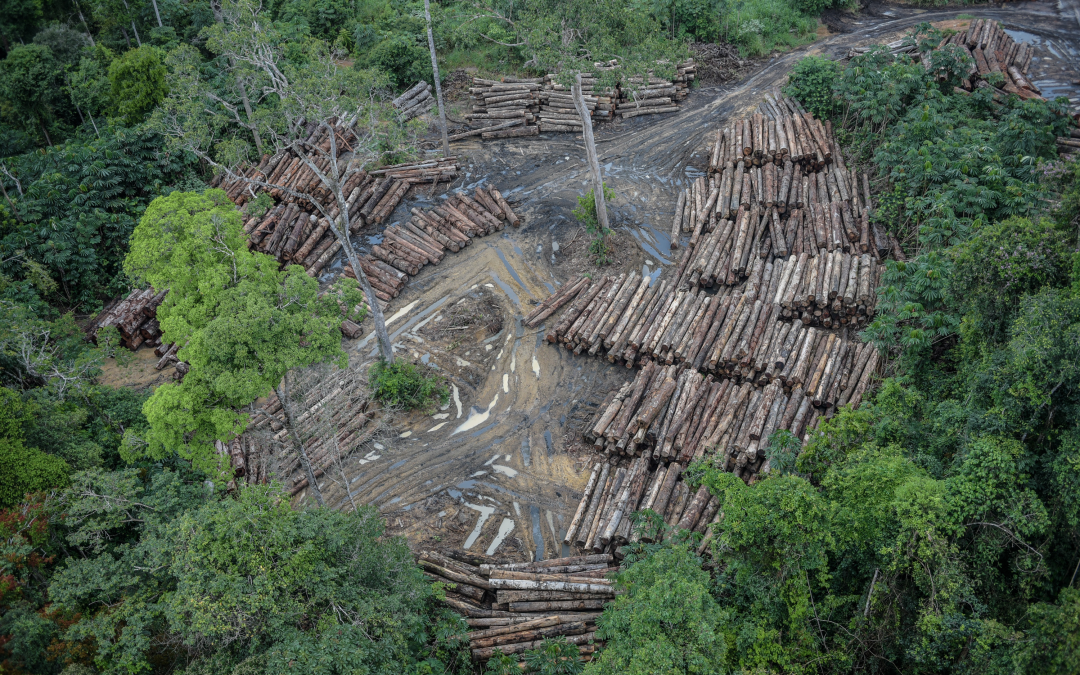
06/Apr/2021
Nearly 200 Brazilian organizations warn American President about risks of a closed-doors negotiation with the Brazilian ruler.
A group of 199 Brazilian civil society organizations released today (6th) a letter to the American government, warning that a forthcoming cooperation deal between the United States and the Bolsonaro administration could bring a risk for the environment, human rights, and democracy.
The Joe Biden administration has been negotiating for several weeks, behind closed doors, an environmental agreement with the government of Jair Bolsonaro. Such deal is to be announced in the climate summit convened by the US President for the 22nd and 23rd of April. Sources close to the talks say the agreement shall involve money transfers to Brazil. In the campaign trail, Biden talked about raising US$ 20 billion to save the Amazon.
According to the letter, the negotiations with Bolsonaro – a denier of the Covid pandemic who has dismantled Brazil’s longstanding environmental policy and who was sued by indigenous peoples in the International Criminal Court for crimes against humanity – put to test Biden’s inaugural speech: the American President promised then to fight the pandemic, structural racism and climate change, and to reclaim America’s place in the world through “the power of its example”. “President Biden needs to choose between being true to his speech and lending political prestige and money to Bolsonaro. He can’t have both.”
The text also states that any dealings with Brazil about the Amazon must involve civil society, subnational governments, academia and the private sector. And no talks should move forward until Brazil has slashed deforestation rates to the level required by the national climate change law and until the string of bill proposals sent do Congress containing environmental setbacks is withdrawn.
“Any deal that fails to respect those premises would be an endorsement do the humanitarian tragedy and to the environmental and civilizational setback imposed by Bolsonaro”, the NGOs say. “It is not sensible to expect any solutions for the Amazon to stem from closed-door meetings with its worst enemy.”
“The Bolsonaro government strives to legalize the exploitation of the Amazon, bringing irreversible damage to our territories, to our peoples and to life in this planet. We are united to harness all support we can get that may strengthen the fight for our lives and for Mother Earth. We remain mobilized against the genocidal project that has been trying to eliminate us for more than 520 years in Brazil and which also destroys our biodiversity. That is why we insist: indigenous blood, not one drop more”, says Alberto Terena, executive coordinator of Apib (Brazilian Indigenous Peoples’ Articulation).
“When the Cerrado, the Amazon or the Pantanal burn, our people burn. The Bolsonaro government strikes bilateral deals that go against our Constitution and destroy nature; he does not respect our territories and he’s making no effort to demarcate them. Even in this moment of pandemic, in which we can’t bury or mourn our dead, Bolsonaro keeps trying to defeat us, through the destruction of our biodiversity”, declares Biko Rodrigues, national articulator of Conaq (National Coordination for the Articulation of Black Rural Quilombola Communities).
“Brazil is today a divides country. On one side there are indigenous peoples, quilombolas, scientists, environmentalists and other people that fight for life and against deforestation. On the other side is the Bolsonaro regime, threatening human rights and democracy and puts the Amazon in risk. Biden must pick a side”, says Marcio Astrini, executive secretary of the Climate Observatory.
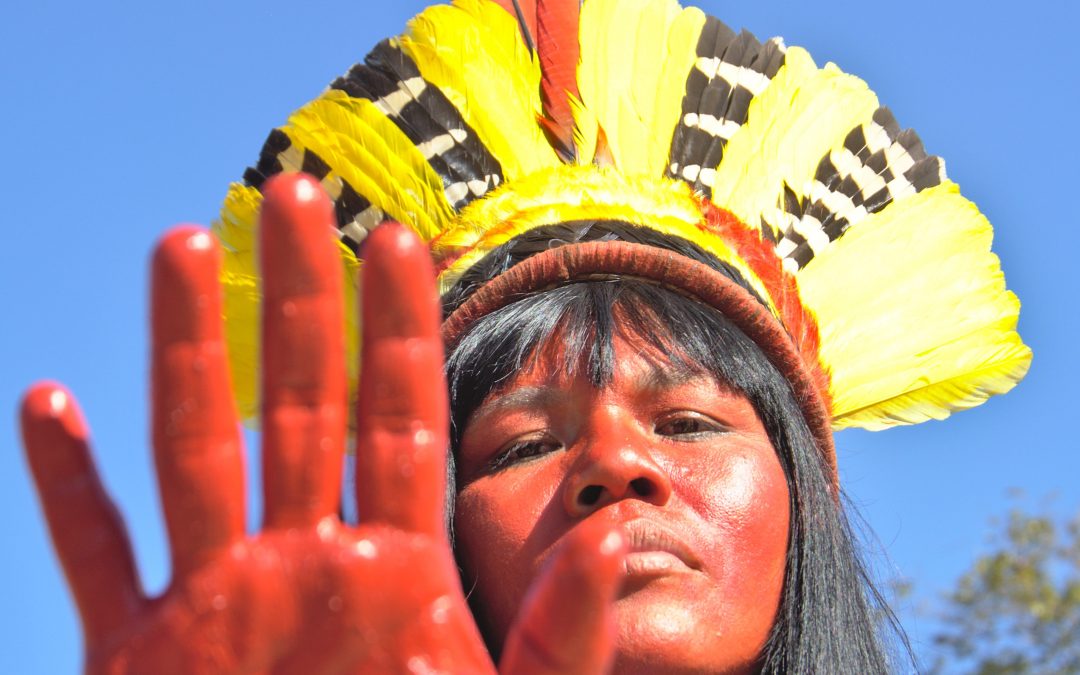
05/Apr/2021
UNION AND FIGHT OF INDIGENOUS PEOPLES AGAINST VIRUSES THAT KILL US
Declaration of the Indigenous April – Camp Terra Livre 2021
520 years ago, the European invasion of our traditional territories decimated millions of original inhabitants and made thousands of peoples, cultures and languages disappear. A genocide that is one of the most tragic calamities known in human history.
For the colonizers and their descendants, however, the death project was understood to be successful, where the assassins were rewarded for the occupation of our lands and territories. Since then, we have been victims of spoilage, depletion, destruction, violence, prejudice, discrimination, racism, in short, ethnocidal and genocidal policies and practices.
In all phases of Brazilian history, the indigenous policy, following the continuous process of capitalism’s metamorphosis, served to extinguish us physically or culturally, through assimilationism, and integrationism, of the expeditions to “hunt of indigenous”, forged wars, removals, the civil-military regime, the expulsion from our territories, persecutions, murders and massacres.
The Federal Constitution of 1988 put an end to this history written with the blood of our ancestors. After intense mobilizations and struggles by our peoples and leaders, Brazil’s main law has come to recognize that the country is diverse, multi-ethnic and multicultural, establishing our right to exist as parts of the State, with autonomy and maintaining our identity and our differences. The Constitution recognized, therefore, the indigenous peoples, our customs, languages, beliefs, traditions and the right to the lands that they traditionally occupy, which is an original, natural, congenital right, that is to say, of prior origin to the national state constitution. As a result of these recognitions, our peoples have earned the right to differentiated public policies, such as the ou lands demarcation and protection, indigenous school education and health care, through the subsystem currently managed by the Special Secretariat for Indigenous Health (SESAI) and the Special Indigenous Sanitary Districts (DSEIs).
The Brazilian State, its elites and successive rulers, however, have always treated us as obstacles to their projects of development, occupation and death. Hence, it can be understood why the State has never structured itself to fulfill and make the precepts constitutional a reality.
During the democratic life of Brazil, until the institutional rupture as a coup in 2016, we achieved some advances, always with a lot of struggle, such as: the demarcation of indigenous lands, participation in instances of deliberation and social control of the policies that concern us, having as maximum expression the National Commission for Indigenous Policy (CNPI); the creation of SESAI; the construction and promulgation of the National Policy for Territorial and Environmental Management of Indigenous Lands (PNGATI) and the impossibility of anti-indigenous legislative initiatives such as PEC 215 and the mining bill on indigenous lands.
With the election of the current president, Jair Bolsonaro, our indigenous peoples were once again targeted by a death project, which, as in the days of the European colonial invasion, is intended to usurp, drain and chase us away from our territories, in favor the empire of capital: agribusiness, mining, livestock, logging and so many other ways of destroying Mother Nature, with which we will run the risk of dying together, physically and / or culturally, since we are part of it.
Essa política, que nós temos denunciado reiteradamente como genocida e ecocida, encontrou na Pandemia da Covid-19 um solo fértil para “passar a boiada”, o que tem levado ao aumento da violência e dos conflitos, inclusive entre parentes, conflitos esses alimentados pelo próprio governo com objetivo de dividir, enfraquecer e desmobilizar os nossos povos, organizações e lideranças na batalha contínua de defender e garantir o respeito a direitos fundamentais.
The viruses that kill us!
We denounce the smear, intimidation and criminalization campaign promoted by members of the current government against our movement and our leaders. The neglect of this hate and racist policy practiced against our peoples is even more evident in this pandemic context.
The Federal Government is the main transmitting agent of Covid-19 among indigenous peoples. Without effective policies to face the pandemic, we affirm that the Bolsonaro government neglected its obligation to protect workers and users of the Indigenous Health Subsystem and, thus, favored the entry of the virus in several territories. We emphasize that it is the managing agency duty, the Special Secretariat for Indigenous Health (SESAI), to provide the appropriate inputs, training and protocols for the safety of workers and users.
With speeches laden with racism and hatred, Bolsonaro encourages violence against our communities and paralyzes the actions of the State that should promote assistance, protection and guarantees of rights. It tries to take advantage of the “opportunity” of this crisis to proceed with a series of decrees, ordinances, normative instructions, provisional measures and bills that attempt to legalize crimes and diminish the constitutional rights of indigenous peoples.
Bolsonaro’s genocidal policy during the Covid-19 pandemic is reinforced with repeated actions to deny the vaccine, which is the main weapon to fight the virus, and neglect in the immunization campaign management. The government’s determination to vaccinate only indigenous people living in homologated lands is another action of violence, as it excludes indigenous people who live in urban areas, repossessed and indigenous lands in the process of demarcation.
With this decision, obscurantism, ignorance and authoritarianism, which mark the hideous dictatorship of the Jair Bolsonaro government, translate into a death plan against the indigenous peoples of Brazil, since the immunization plan excludes 42.3% of a population estimated at 896,900 by the demographic census carried out by the IBGE in 2010. As if that were not enough, allied sectors, members of the government and Bolsonaro himself spread countless false information to indigenous communities that induced many indigenous people to reject the vaccine against Covid -19.
We decided not do die!
Faced with all this violent scenario that surrounds us and the many lives lost during the pandemic, we from the Articulation of Indigenous Peoples of Brazil (Apib), together with all our grassroots organizations, reinforce our commitment to fight for the lives of our peoples .
Throughout the pandemic, we reinvented our online mobilizations and renewed our strategies for fighting. We created the Indigenous Emergency plan to support sanitary barriers in hundreds of territories. We guarantee food security for more than 10,000 families. We distributed more than 300,000 health safety equipment, supporting indigenous health teams across the country. We achieved, in an unprecedented way, the recognition of the Supreme Federal Court, which admitted Apib as an entity that can bring direct actions in the Brazilian main court of justice and we won a victory with ADPF 709, which obliges the Federal Government to adopt measures to protect the Indigenous peoples.
The pandemic is not over and the violence remains intense, we need to be united and mobilized. In this sense, we at Apib, with our grassroots organizations, have called the 17th Camp Terra Livre 2021, to strengthen the struggle efforts of our Indigenous April.
After the worst month of March of our lives, we will bring the April of the greatest mobilization of our struggles! We saw more than 1000 of our people fall into the covid-19 pandemic, and we felt the pain of the loss of our old people. But we, indigenous peoples, also have the strength of our ancestors on our side.
Parentes, esse é um chamado pela nossa união. Precisamos estar organizados e mobilizados pela vacinação de todos os indígenas, pela garantia dos nossos direitos fundamentais, em especial do nosso direito territorial brutalmente massacrado por este governo neofacista, e pelo bem viver da nossa Mãe Terra.
NUNCA MAIS UM BRASIL SEM NÓS! Essa é uma afirmação que fortalecemos ano após ano. Estamos nas redes, aldeias, universidades, cidades, prefeituras, câmaras legislativas federais, estaduais e municipais e seguiremos lutando contra o racismo e a violência que oprime e mata.
Em um mundo doente e enfrentando um projeto de morte, nossa luta ainda é pela vida, contra todos os vírus que nos matam!
Indigenous peoples, this is a call for our union. We need to be organized and mobilized for the vaccination of all indigenous people, for the guarantee of our fundamental rights, especially our territorial right brutally slaughtered by this neo-fascist government, and for the good life of our Mother Earth.
NEVER AGAIN A BRAZIL WITHOUT US! This is a statement that we strengthen year after year. We are in networks, villages, universities, cities, city halls, federal, state and municipal legislative chambers and we will continue to fight against racism and the violence that oppresses and kills.
In a sick world and facing a death project, our fight is still for life, against all the viruses that kill us!
For the life and historical continuity of our peoples, “Tell the people to move forward”.
Our fight is still for Life, not just the virus!
Articulation of the Indigenous Peoples of Brazil – APIB
Brazil, April 5, 2021
APIB regional organizations:
APOINME – Articulation of Indigenous Peoples of the Northeast, Minas Gerais and Espírito Santo
SOUTHEAST ARPIN – Articulation of Indigenous Peoples of the Southeast
ARPINSUL – Articulation of the Indigenous Peoples of the South
ATY GUASU – Great Assembly of the Guarani people
Guarani Yvyrupa Commission
Terena People’s Council
COIAB – Coordination of Indigenous Organizations in the Brazilian Amazon
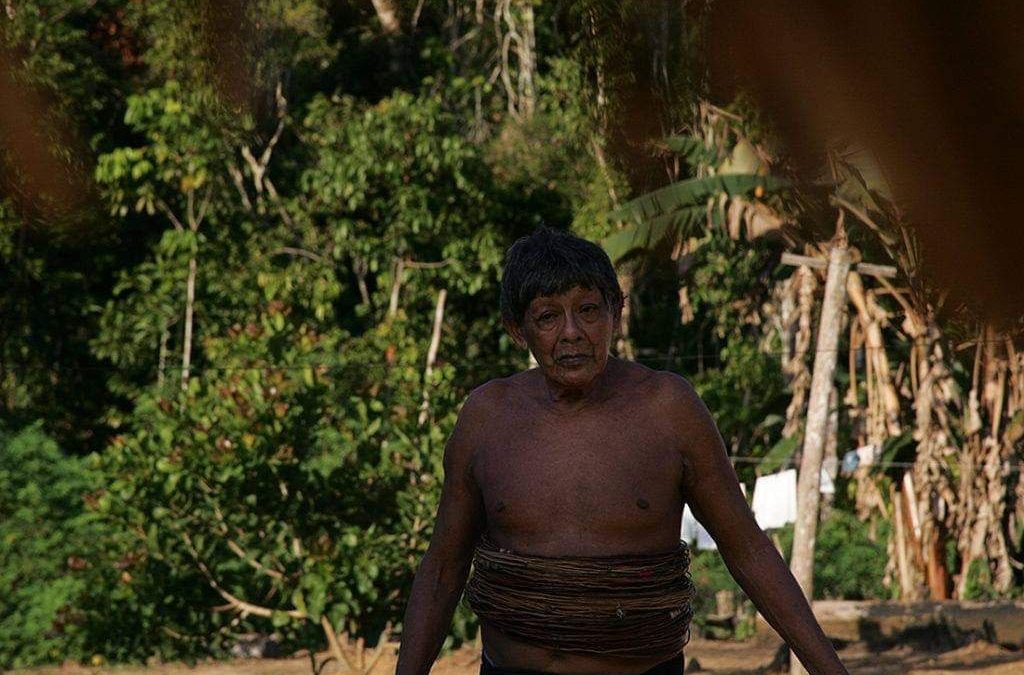
18/Feb/2021
The death of the last man of the Juma indigenous people, the warrior Amoim Aruká, by complications from Covid-19, is heartbreaking. The Juma people have suffered numerous massacres throughout their history. From 15,000 people at the beginning of the 20th century, it was reduced to five people in 2002. A proven, but never punished, genocide that led its people almost to complete extermination. The last massacre took place in 1964 on the Aswan River, in the Purus River basin, perpetrated by Tapauá city’s traders interested in the sorghum and chestnut in the Juma territory. In the massacre more than 60 people were murdered, only seven survived. Members of the extermination group hired by the merchants reported shooting at the Juma people as if they were shooting at monkeys. The indigenous bodies were seen by other traditional people (ribeirinhos) in the region after the massacre, serving as food for wild pigs and countless decapitated heads scattered on the forest floor. The mastermind of the crime, aware of what had happened, boasted that he was responsible for ridding “Tapauá city out of these ferocious beasts”. This story must never be forgotten.
Aruká, one of the survivors, continued his resistance struggle, seeing his people verging on disappearance. He fought for the demarcation of the Juma territory, which was only approved in 2004, the Juma Indigenous Land (TI). The Juma survivors, despite the risk of disappearance, saw their people grow again in the 2000s, through marriages with indigenous Uru Eu Wau Wau, indigenous people also of Tupi-Kagwahiva language branch.
Because they are subject to an immense vulnerability and risk of disappearance, the Juma people are considered to be of recent contact and are among the indigenous ethnical groups to be protected by Sanitary Barriers, whose installation was determined by the Supreme Federal Court at the request of indigenous peoples, representatives of the Coordination of the Indigenous Organizations of the Brazilian Amazon (COIAB), through the Articulation of the Indigenous Peoples of Brazil (APIB), in the Statement of Noncompliance with Fundamental Precept No. 709 (ADPF 709). The request was made in July 2020 and Minister Luís Roberto Barroso accepted. However, given the difficulties alleged by the Bolsonaro government, the minister gave the deadline until September 2020 for the Barriers in the Juma indigenous land to be installed. In August 2020, the Bolsonaro government said it would build the Barrier on the Assuã River, at REBIO Tufari, outside Juma land, it would be a Sanitary Barrier composed of the Military Police and Special Indigenous Health District (DSEI)-Humaitá. However, in December of the same year, he stated that he would make only one access control post on the BR 230 – Transamazônica Highway, but did not prove its effective functioning.
Whether the access post worked or not, as representatives of COIAB and APIB had been charging for months in the Situation Rooms with the Bolsonaro Government, it no longer matters for Aruká. What is known is that he is now dead. Sadly, it is through their dead that indigenous peoples prove their appeals. COIAB and APIB warned that indigenous people of recent contact were at extreme risk. The last surviving man of the Juma people is dead. Again, the Brazilian government proved to be criminally silent and incompetent. The government murdered Aruká. Just as he murdered his ancestors, it is a devastating and irreparable indigenous and humanitarian loss.
Manaus, Amazonas, February 17, 2021.
Coordination of Indigenous Organizations in the Brazilian Amazon (COIAB)
Articulation of Indigenous Peoples of Brazil (APIB)
Opi – Observatory of Human Rights of Isolated Indigenous Peoples and of Recent Contact
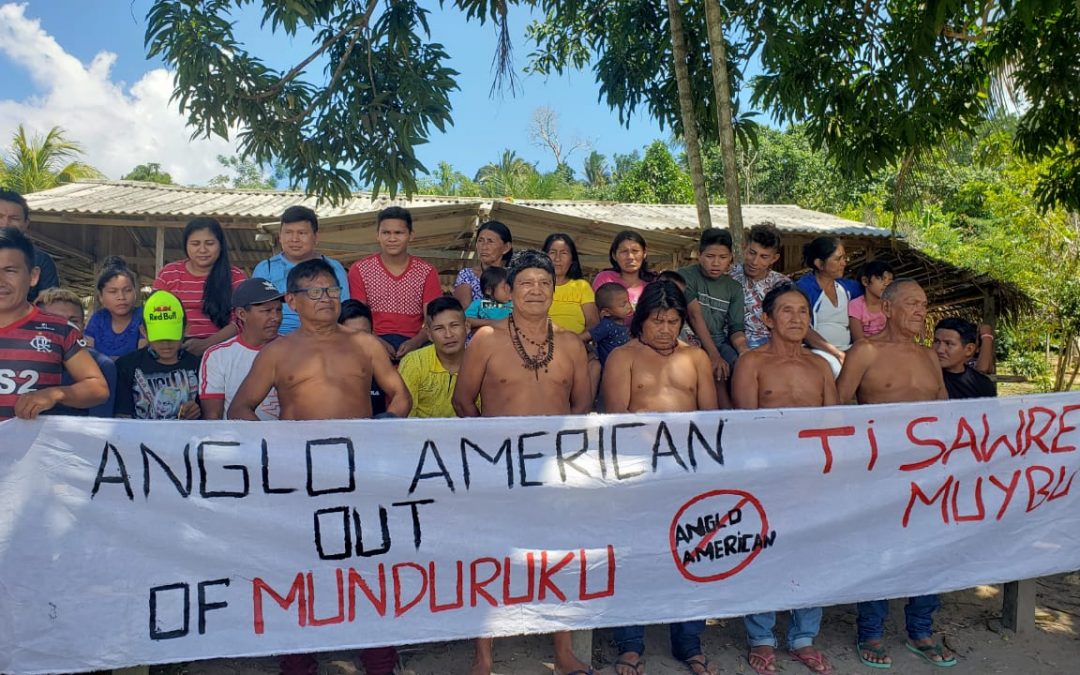
09/Feb/2021
The mining giant clarified this decision in response to a letter by the Association of Brazil’s Indigenous Peoples (APIB) and Amazon Watch, in support of the Munduruku people demanding Anglo American immediately withdraw applications for copper exploration on Sawré Muybu land.
Brasília/Brazil, Oakland/USA – On January 25, British mining company Anglo American responded to the open letter from the Association of Brazil’s Indigenous Peoples (APIB) and Amazon Watch from December 22, in which the organizations demanded that the mining company make a public commitment not to carry out mining activities on Indigenous lands in Brazil, regardless of changes to Brazilian legislation. In its response, Anglo American states: “We cannot make a commitment to rule out any mining activities on Indigenous Lands in Brazil.”
Without mentioning Bolsonaro’s new policy that authorizes mining on Indigenous lands (PL 191/2020), Anglo American says that all legislative changes that affect Indigenous rights must be made in consultation with the potentially affected communities, and “such consultations should appreciate the complexity and diversity of communities, and that their aspirations may differ, with some communities welcoming mining and others deciding against it.”
However, Bolsonaro’s bill proposes to reclaim full control over land use, while removing the veto power of Indigenous peoples in relation to the exploration of their territories. Mining would only require approval at the President’s discretion, after a merely symbolic consultation process with Indigenous peoples to confirm projects.
After receiving this response, APIB requested a meeting with Anglo American to explain and share once again the demands of the Indigenous movement and communities potentially impacted by the mining company and replied to Anglo American in a response letter. For APIB, Anglo’s response is insufficient. “We are waiting for a new resolution by Anglo American, which should be only one for Indigenous peoples: to publicly commit to cease mining activities on Indigenous territories in Brazil. It is important to remind the mining company that the majority of Indigenous peoples and communities in Brazil do not share the desires of a minority of Indigenous individuals who are deluded and yield to the veiled evil intentions of this government,” according to Eloy Terena, APIB’s Legal Coordinator.
APIB’s and Amazon Watch response letter to Anglo American can be read here.
Background
On November 20, in response to the Business and Human Rights Resource Center, Anglo American stated that it had given up all applications for mineral exploration inside Indigenous lands in Brazil and that it would contact the Brazilian National Mining Agency (ANM) to update its applications, following the release of the Complicity in Destruction III report, published by APIB and Amazon Watch. However, on November 27, InfoAmazônia revealed that the National Mining Agency (ANM) had granted permission for 27 of the mining company’s applications for copper prospection within Indigenous territories in the states of Mato Grosso and Pará. Of those 27, 13 are for prospecting in the Sawré Muybu territory.
In the response sent to APIB, the mining company claimed “adhere to local laws and international standards when engaging with Indigenous Peoples and we will seek to obtain Free, Prior and Informed Consent (FPIC) of Indigenous Peoples prior to conducting activities that require access to Indigenous Peoples’ lands and/or impact Indigenous Peoples’ livelihoods or cultural heritage during all stages of exploration.” Anglo American also alleged, to respect “the right of indigenous communities to oppose mining-related activities on their land and will refrain from undertaking any activities if consent is withheld.”
However, the company fails to mention any consultation efforts with the Munduruku people and even though it acknowledges having three concession applications that overlap the Sawré Muybu Indigenous Territory.
The Munduruku people have made their veto clear in a recent demonstration held on January 16, in the Sai Cinza village, in Itaituba, state of Pará. With a banner, they sent their message in English: “Anglo American: Out of Munduruku – TI Sawré Muybu.”
Alessandra Munduruku, a Munduruku leader and warrior, shared photos from the action on her Facebook page, with the message: “The Anglo American mining company requested authorization to ANM to explore the Sawré Muybu Indigenous Territory—[it is] a mining company that destroys forests, rivers, and Indigenous peoples. We are here inside [our territory] and will continue to be. Anglo American—Get Out! Demarcation Now! The people will go on resisting.”
At the Munduruku People Resistance Forum, held in December 2020, the Munduruku mentioned mining and the presence of large mining companies on their territory, such as Anglo American, as high-impact threats to their territories and communities in a heartfelt announcement demanding the recognition of the Munduruku’s rights to life and land.
In support of the demands issued by the Munduruku, APIB and Amazon Watch have published a petition that will be sent to Anglo American to pressure the mining company to withdraw its mining applications on Indigenous territories.
The Munduruku people and all Indigenous peoples who may be impacted by Anglo American’s activities demand that the mining company make a public commitment to cease all mining activities in Indigenous territories in Brazil and that it withdraw all applications for mineral exploration in Indigenous territories. Only then would Anglo American be in line with their human rights and biodiversity protection pledges, particularly the ICMM Position Statement on Mining and Protected Areas.
Anglo American’s full response and clarification regarding their mineral research applications on Indigenous lands can be read here. And its policy for Indigenous peoples is summarized in a document called Social Way, available here.
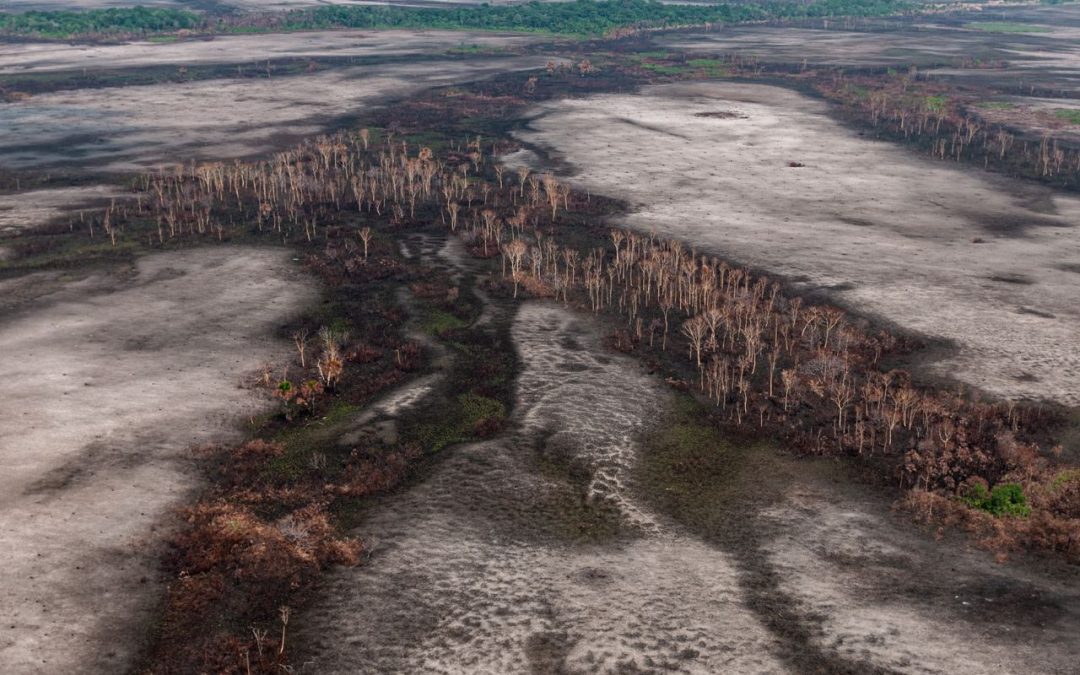
11/Jan/2021
Brasília, Brazil – Today, the Association of Brazil’s Indigenous Peoples (APIB) sent an open letter to BlackRock CEO Larry Fink, calling on the asset management firm to adopt a comprehensive Forests and Indigenous Rights policy. The letter comes days before the expected release of Fink’s annual letter, in which he often announces policy changes at the companies BlackRock invests in, and will announce a recent pledge from BlackRock to further clarify its approach to deforestation.
BlackRock is the world’s largest investor in deforestation-risk commodities, including in the Amazon. Recent research from Amazon Watch and APIB found that BlackRock is one of the world’s top investors in companies complicit in Indigenous rights abuses in the Brazilian Amazon, including Vale, JBS, Anglo American, Cargill, and more. Previous research published in 2019 by APIB and Amazon Watch demonstrated that BlackRock is a top investor in companies complicit in illegal deforestation activities in the Brazilian Amazon.
“BlackRock’s investments have an impact on our lives and our communities, and you, therefore, have a responsibility for our future. And if the Amazon is destroyed, the future of the entire planet is at risk,” wrote Luz Eloy Terena, part of APIB’s Legal Coordinator and a member of the Terena people, in the letter.
BlackRock has hinted it will take new steps on deforestation and biodiversity in 2021 but has provided no indication that it plans to address Indigenous rights. Studies show that Indigenous lands are crucial to protecting the world’s remaining intact forestland and halting global temperature rise. Protected areas in the Brazilian Amazon inhabited by forest peoples include Indigenous territories, extractive reserves (a type of sustainable use protected area in Brazil), and Sustainable Development Reserves that comprise up to 128.5 million hectares — an area equivalent to three times the size of the state of California. These protected areas store 56 percent of the total carbon stock in the Brazilian Amazon; preserving these protected areas is critical to achieving the goals of the Paris Climate Agreement.
“BlackRock has begun to take some climate action, but no climate action is complete without addressing deforestation, and no deforestation action is complete without safeguarding Indigenous rights. BlackRock must use its market power to actively push for companies to decarbonize, as science makes clear is necessary, and to end the large-scale Indigenous rights abuses associated with the fossil fuel and forest-risk commodity industries,” said Moira Birss, Climate and Finance Director at Amazon Watch.
As outlined in the letter, APIB’s Eloy Terena addressed CEO Larry Fink at BlackRock’s annual meeting of shareholders in May 2019 asking BlackRock to account for BlackRock’s impacts on Indigenous rights abuses and forest destruction in Brazil. Months later, the Brazilian Amazon was set ablaze by criminal arsonists, emboldened by Bolsonaro, and enabled by financially complicit institutions such as BlackRock. After APIB’s Executive Coordinator, Sônia Guajajara, wrote a letter to BlackRock in October 2019, BlackRock staff agreed then to meet with APIB Indigenous leaders. Although a call happened in December 2019, BlackRock staff never followed through with a scheduled in-person meeting for March 2020, despite APIB’s efforts to accommodate a virtual meeting noting new restrictions due to the pandemic.
Background:
In July 2020, Amazon Watch, Friends of the Earth U.S., and the BlackRock’s Big Problem campaign issued a set of baseline principles for any asset manager forests policy. Both those principles and APIB’s letter make clear that, at a minimum, any attempt by BlackRock or other asset managers to address deforestation among portfolio companies must include the following:
- Respect for Indigenous peoples’ rights, land rights, and self-determination;
- Requirements that companies consult with and obtain Free, Prior, and Informed Consent from Indigenous peoples and other traditional and local communities before engaging in any business activity that would impact them;
- Clear criteria and standards for time-bound engagement with investee companies and, if engagement does not result in concrete changes in company behavior and operations, a process for the exclusion of companies in both active and index funds based on these specific criteria and standards;
- Zero tolerance for attacks against land defenders;
- No deforestation, peat, or exploitation permitted in any company supply chain;
- Disclosure on emissions coming from the supply chains or financial flows (Scope 3 emissions);
- Water and soil contamination protections.
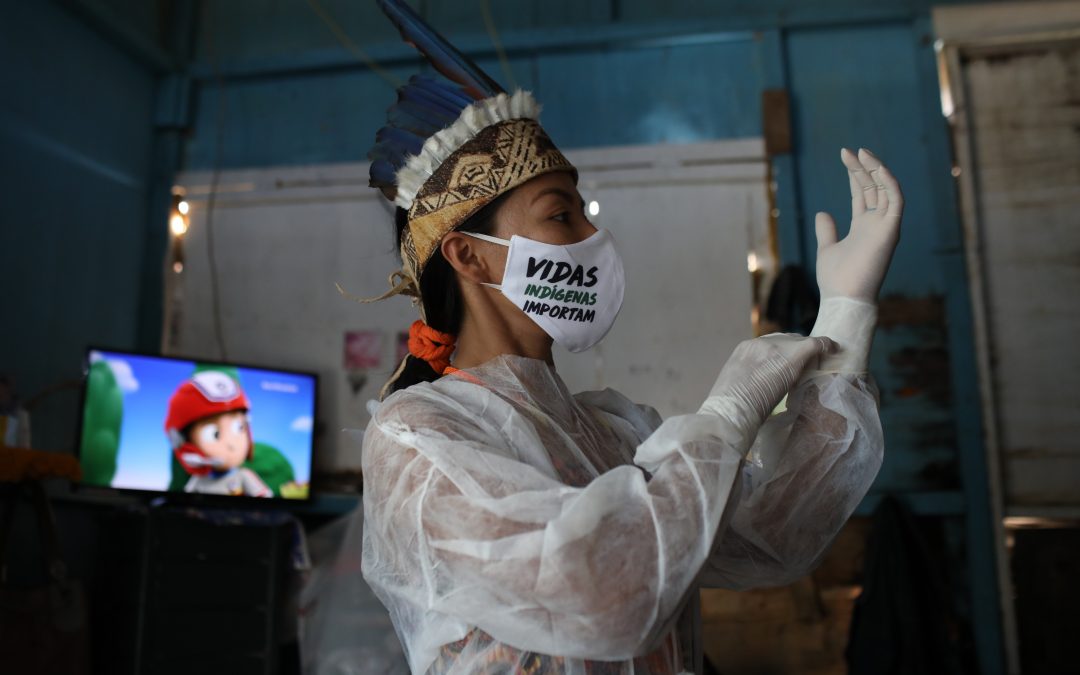
10/Dec/2020
Indigenous Lives Matter. And in the midst of the pandemic, our lives have become the subject of attacks, persecution and extermination. This manifesto is about the struggle for indigenous lives. Lives neglected by the government and lives saved by solidarity. Lives we lost, and lives that we try to protect. The life of indigenous people who are in villages and cities, but above all, our life in the broader sense and which is under intense attack: our territories, our identity and ways of life, forests, rivers, biodiversity … Mother Earth.
By November 2020, more than 41 thousand indigenous people were contaminated by new coronavirus, reaching more than half of the 305 people living in Brazil.
We, of the Articulation of Indigenous Peoples do Brasil (Apib), and all of our grassroots organizations, with representations in five regions of the country, in the face of the COVID-19 pandemic, we strive daily for peoples’ lives.
It was between March and November 2020, that violence against indigenous peoples increased both inside and outside our territories. The criminals who invade our lands have not been quarantined let alone working home office. We affirm that the worsening of violence against indigenous peoples, during the pandemic, was encouraged by Bolsonaro.
What the federal government actually did in this period? It tried to use the health crisis and the pandemic to “pass the cattle” over our rights, our bodies and our lands. Such actions marked the government of the current president and senior echelon of the federal government during the humanitarian and health crisis, which also reached our peoples and communities.
We warn that this situation of violence directly and indirectly affects our 305 peoples, relatives in voluntary isolation and also the Warao indigenous people, who are refugees from Venezuela and live in a situation of extreme vulnerability in Brazil.
With speeches filled with racism and hatred, Bolsonaro encourages violence against
our communities and paralyzes the actions of the State that should promote assistance, protection and guarantees of our rights. It tries to take advantage of the “opportunity” of this crisis to proceed with a series of decrees, ordinances, normative instructions, provisional measures and bills to legalize crimes and diminish the constitutional rights of indigenous peoples. They were silent actions in protection and active in plundering.
More than 1 million people died around the world as a result of the spread of Covid-19 (until the end of November), and Brazil reached, in July, the highest number of deaths among countries.
Indigenous peoples were proportionally the most affected by the virus. The number of deaths reached 880 in nine months, according to the community participatory monitoring project carried out by the National Committee for Indigenous Life and Memory, created by Apib and its grassroots organizations and partners. A tragedy unparalleled in recent history. Way more than numbers, they were our shamans, our prayers, midwives, elders and chiefs who left. We lost our elderly people, the ones who keep the memories of our ancestry, guardians of knowledge, of songs, of prayers, of our spirituality. Leaders who dedicated their lives to the struggle to defend the territory, the integrity and the physical and cultural existence of their peoples. We suffer in our mourning for this tragedy that affects not only us indigenous people, but all of humanity.
The pandemic exposed the hate policy that Apib had already denounced. Political violence and persecution have further accelerated. From March to November, more than 200 fundamental human rights violations against indigenous peoples were recorded. An alarming situation that gets worse every day.
In this atmosphere of terror, the federal government promotes the greedy fury of agribusiness, mining companies, corporations and international investment funds.
Encourages the action of land grabbers, invaders, and so many other criminals who continue to advance into indigenous territories, taking advantage of the tragedy we are experiencing. The fire and deforestation, carried out in 2020, can not be denied in the face of satellite images and our horizon permanently foggy. It seems that in the flames they see profit, and in felled trees, there is only greed.
TURNS OUT WE DECIDED NOT DIE, BUT FIGHT TIRELESSLY IN DEFENSE OF LIFE.
We denounce the aggressions against our rights in the legislative scope, which validate racism, dehumanize our existence and who want to extinguish our self-determination over our territories and lives. We have appealed to the Judiciary to defend our assured rights by the Brazilian Constitution of 1988. Over these eight months, we provoked the judiciary through actions, including Arguition for Failure to Comply with Fundamental Precept (ADPF) 709 in the Federal Supreme Court (STF). We achieved victories, such as the determination of the STF to oblige the Federal Government to fulfill its duty in protecting indigenous peoples in the context of the pandemic. A Supreme Court decision, which still wasn’t met by Bolsonaro.
Apib and its grassroots organizations keep working daily to strengthen, protect and value indigenous health professionals. Especially to our relatives who are on the front line facing this crisis, even though they are one of the greatest risk groups of Covid-19. We reinforce that the Special Secretariat for Indigenous Health (Sesai) is the result of the struggle and mobilization of Apib and the entire indigenous movement.
We created the “Indigenous Emergency” plan due to the active omission of the Federal Government in fighting the virus. We do not want to replace the role of the State, on the contrary, we continue to demand the implementation of public policies that guarantee our
rights. But we also can’t stay with our arms crossed. In this sense, we were able to articulate resources and materials to equip, on an emergency basis, several Special Indigenous Sanitary Districts (DSEIs) in several states. We deliver test equipment, hygiene materials, personal protective equipment, oxygen, concentrators, and we enable the installation of Indigenous Primary Care Units (UAPIs) in various territories.
On our own initiative, we created and maintained hundreds of health barriers to prevent the virus from reaching communities. A measure that the Federal Government does not just neglected but tried to sabotage in different ways. This basic action, that our communities have implemented on their own, was instrumental in minimizing the impacts of the new coronavirus among our relatives across the country.
At our bases we continue to resist, inspired above all by the strength of indigenous women and our ancestors. We care for the land and strengthen ourselves in the forests, rivers, prayers and our traditional medicines. We perform our rituals, we cry our mourning. And we keep looking for strength.
In the social networks, we played our Maracás. We demarcated the screens and resignified our mobilizations over the internet. We held the 16th Terra Livre Camp, in 2020 virtually, due to the pandemic, reaching more than 1.5 million people during the four days of online activities. We promoted the National Assembly of Indigenous Resistance, bringing together hundreds of leaders from all over the country and rearticulating our fight strategies. With the Maracá online series, we mobilize the support of hundreds of indigenous and non-indigenous personalities, leaders, artists, scientists, parliamentarians and researchers to our Indigenous Emergency plan. To give us strength, we called on the online Indigenous Women March, to debate the sacred of existence and to strengthen joint actions. We promoted Earth Healing, a global gathering of indigenous women.
From fear, silence, death and terror, we recreate hope! We plant our gardens, fetch water to drink, clean the village floor and fix the roofs with collective work. Living close to Nature. Our life is in defense of the forest, biodiversity and the Planet, and that is why we must fight together in its defense.
Our young people cry for their masters, their examples and life inspirations, but our ancestry is long, millenary and has taught us to dream. From the pain of genocide and persecution, which we are suffering, we have survived close to the ground of our land, which is our blood and exists in every part of this Brazilian territory. And we will not give up on recreating our devastated worlds and continuing our existences.
WE WILL NOT GIVE UP ON LIVING!
Indigenous blood: not a single drop more!
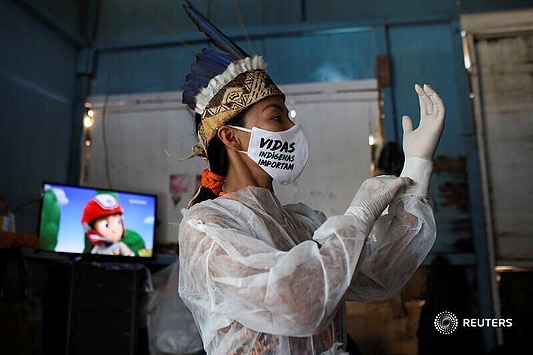
07/Dec/2020
The document “Our struggle is for life” provides a complete overview of the current health and humanitarian crisis among the indigenous peoples of Brazil. Denunciations of rights violations, analysis of data presented by the Federal Government and actions to combat the spread of the virus, are the main topics addressed by the report.
The Articulation of Indigenous Peoples of Brazil – APIB announces the publication of the report “Our struggle is for life” which presents data on the impacts of the Covid-19 pandemic among indigenous peoples. The report presentation will be held on December 10, the date on which the United Nations General Assembly formalized the International Declaration of Human Rights.
The Activity will be carried out in conjunction with the APIB grassroots indigenous organizations, with the Mixed Parliamentary Front in Defense of Indigenous People’s Rights, social movements and organizations that strengthen the indigenous peoples’ struggles.
In addition to recording the growth in the number of infected and killed by Covid-19, the report contextualizes the vectors of virus entry in the territories and the omission of the government to control the spread of the disease.
Violence against indigenous peoples, in this pandemic period, was intensified and this aggravation was encouraged by the Bolsonaro government, according to the survey carried out by Apib.
The report also presents an analysis of the different methodologies used by the Federal Government to record and monitor cases of contamination and deaths by Covid-19 among indigenous peoples. The lack of transparency, added to the institutional racism, especially with indigenous people living in an urban context, reveals once again the Federal Government’s anti-indigenous policy.
“Our struggle is for life” is a material that integrates the social control actions of the Indigenous Emergency plan, an instrument built by Apib to demand from the Federal Government the fulfillment of its constitutional duty to protect indigenous peoples and organize fronts of emergency response actions to confront the pandemic.
The document was organized by APIB through the National Committee for Indigenous Life and Memory, that develops the community monitoring of the spread of the virus among peoples. The Committee is composed of representatives of APIB grassroots indigenous organizations, indigenous leaders and members of networks built to face the pandemic in different territories.
“We also show in this document the thousands of actions carried out by the indigenous movement, throughout Brazil, to save lives. We do not want to take the role of the Government, but it is not an option to sit idly in the face of so much political omission and violence ”, emphasizes Sonia Guajajara, executive coordinator of Apib.
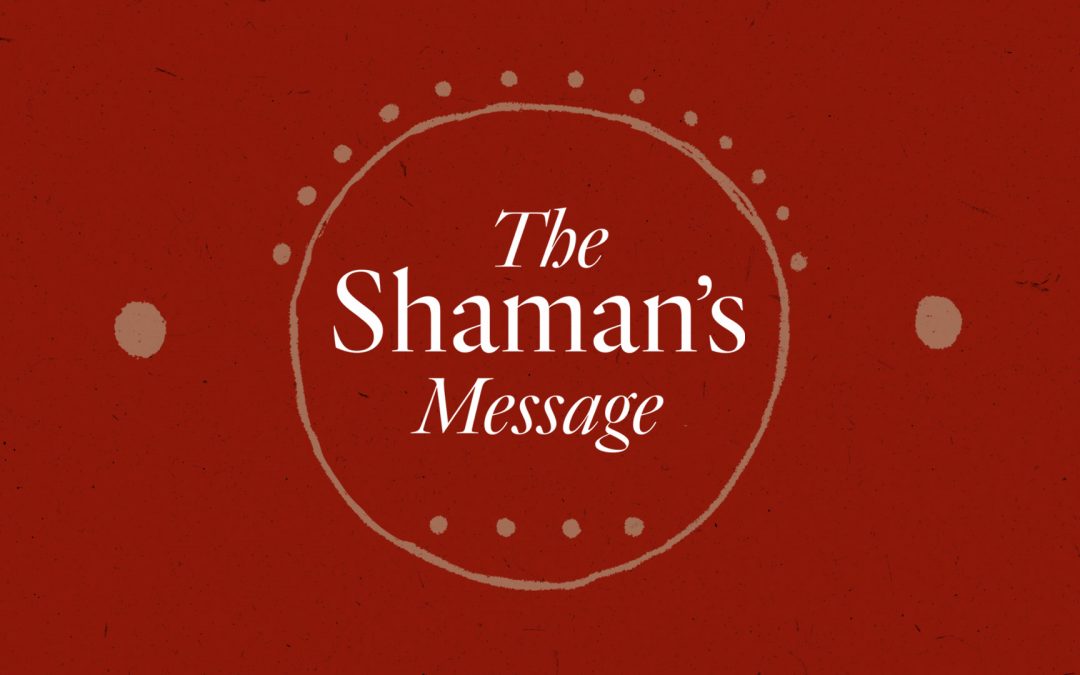
17/Nov/2020
The #MinersOutCovidOut campaign launches the film “The Shaman’s Message” to warn the world that indigenous peoples alone cannot prevent the destruction of forests, the emergence of new pandemics and the climate collapse that threaten all of us.
Yanomami shamans are warriors of the spirit world. They connect the visible and invisible worlds, acting as shields against the evil powers emanating from both humans and non-human beings that threaten the lives of their communities. Shamans dedicate themselves to taming the entities and forces that move the universe. They hold up the sky. During these times of climate crisis, pandemic and massive forest fires, it may be worth listening to what they have to say.
The most well-known Yanomami shaman and leader, Davi Kopenawa, is the author of the book “The Falling Sky – words of a Yanomami shaman” (Harvard University Press, 2013) with French anthropologist Bruce Albert. Inspired by his words and teaching, on November 17 the Yanomami and Ye’kwana Leadership Forum is launching the film “The Shaman’s Message”. The short 2 minute film, narrated in Yanomami by Dario Kopenawa, Davi’s son, condenses the shamanic thought expressed in “The Falling Sky” and seeks to alert the world that, alone, indigenous peoples will not be able to prevent the destruction of forests, the emergence of new diseases and the climate collapse that threaten all of our lives.
Watch the “The Shaman’s Message” here.
Davi Kopenawa says the film brings “a clear thought that passes through the head like lightning, like fish climbing a waterfall”. The Yanomami leader explains that he has worked with other shamans to “hold up the sky”, but now it’s time for governments, big corporations and the “man of material goods” to do their work. “You white people need to think and see how this pandemic happened. Now everyone is afraid of this new xawara, of the coronavirus, but why are they not afraid when they kill millions of trees and fish, when they dig up the earth and spread garbage everywhere?”.
The “Shaman’s Message” is part of the #MinersOutCovidOut campaign, launched in June by the Yanomami and Ye’kwana Leadership Forum, which calls for the urgent removal of thousands of illegal gold miners working in the Yanomami Territory, in the Brazilian Amazon. Since the 1980s, illegal miners have been destroying the region’s forests and rivers and bringing all sorts of violence to communities, as well as diseases that have decimated entire villages. Now, the invaders are also spreading COVID-19 among the Yanomami. Through the end of October, the Pro-Yanomami and Ye’kwana Network had recorded a total of 23 dead and more than 1,200 people infected by COVID-19 in the Yanomami Territory.
The #MinersOutCovidOut campaign is an initiative of the Yanomami and Ye’kwana Leadership Forum, made up of the Hutukara Yanomami Association (HAY), Wanasseduume Ye’kwana Association (SEDUUME), Kumirayoma Yanomami Womens Association (AMYK), Texoli Ninam Association of Roraima (TANER), and the Yanomami Association of Rio Cauaburis and Affluents (AYRCA), Kurikama Yanomami Association (AKY) and Hwenama Association of Yanomami Peoples of Roraima (HAPYR). The campaign has support from the following organizations: Coalition of Indigenous Peoples of Brazil (APIB), Coordination of Indigenous Organizations of the Brazilian Amazon (COIAB), Instituto Socioenvironmental (ISA), Amazon Watch, Survival International, Greenpeace Brazil, Conectas Human Rights, Amnesty International, Amazon Cooperation Network (RCA), Igarapé Institute, Rainforest Foundation Norway, Rainforest Foundation US and Amazon Watch.
Launched in June and aimed at the Brazilian government, the campaign has gathered over 410,000 petition signatures. The goal is to reach 500,000 to support the Yanomami and Ye’kwana, as well as all indigenous peoples who suffer invasions of their territories, culture and ways of life. Hear the shaman’s message. Help the Yanomami and other indigenous peoples hold up the sky and postpone the end of the world. Sign the petition: https://MinersOutCovidOut.org










